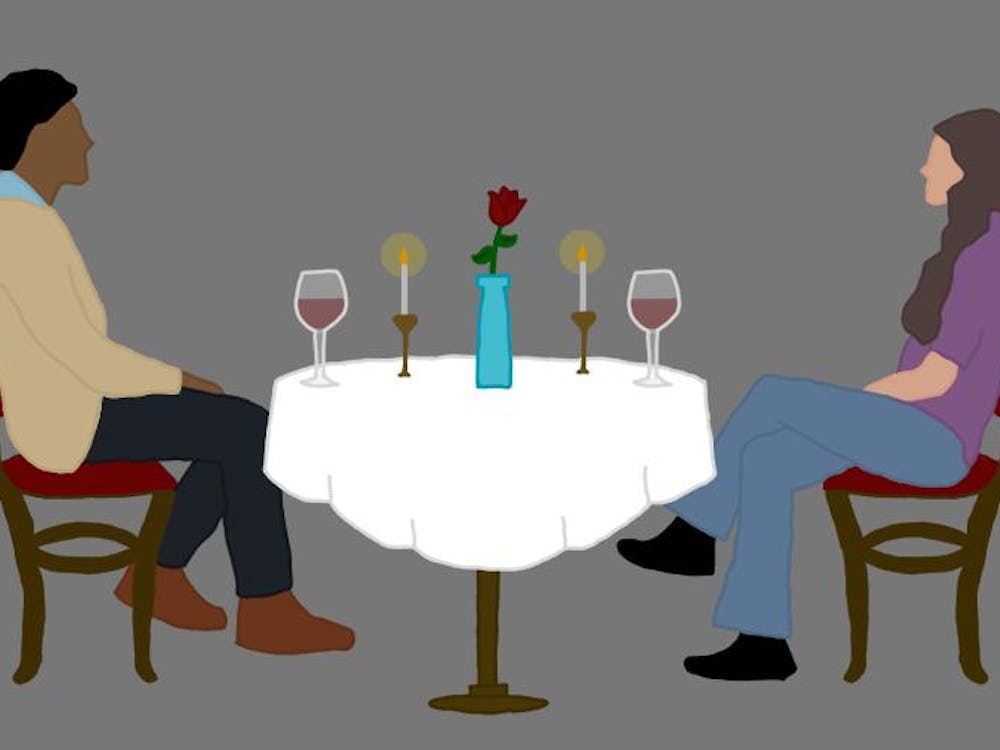I've been looking forward to my semes-ter abroad for years. To make the most of it, I wanted to go with an open mind and an aptitude for some serious cultural enlightenment. I wanted to learn what France was really about. So in preparation for studying in Lyon this semester, I tried my best to break down preconceived notions I had of the French.
Finally arriving in August, I took a look around me and thought my efforts wasted. The stereotypes abounded. As I made my way toward my hotel from the train station, a sea of berets and baguettes charmed me, and a fog of cigarette smoke amused me. But at the hotel, in addition to my key and room, I received what could be defined as typical French service: cool stares and unsmiling faces. I faltered for a moment, but I was so pleased to be in France that I brushed it off and didn't really give it a second thought.
Two weeks later, I was giving it a second thought. What exactly had I gotten myself into over here? It seemed like everywhere I went I encountered the same unfriendly reception as I had at the hotel. By this point, the thrill of interaction with the French had worn off, and they just seemed offensive. The fact that something was French no longer guaranteed it my approval, and the treatment I received was leading to a general disenchantment with the culture. The baguettes were just bread, the berets just hats and the smoke just as cancer-inducing as it was at home.
It took me a few more trying weeks to realize that stereotypes -- particularly the negative ones -- are bound to stand out in the beginning, and that they're not necessarily the defining characteristics of a people. I got to know my host family a bit better and made some friends in class. Soon I was noticing things, good and bad, that weren't readily apparent when I arrived. They did seem to drink ridiculous amounts of alcohol -- I was pretty shocked to be poured seven different drinks at a Sunday brunch -- but it's more due to an appreciation of the flavor than getting completely wasted. It takes a while to discover a culture's nuances, but the nuances are what truly comprise it.
Another lesson learned is that a country's positive values can often easily be misconstrued as negative. The leisurely pace at which the French live can be annoying to an outsider, especially an ever-efficient American. Yet with a closer look, you notice that what at first appears to be sluggish behavior is actually a different way of prioritizing values. French meals, for instance, are rarely rushed, but only because the French cherish this time with close friends and family.
True, the French can come across as blunt and offensive, but it's only due to the weight they attach to honesty. They don't sugarcoat anything, but on the other hand, you can rest assured that any compliment or smile you receive is genuine and therefore valuable.
Clearly, stereotyping is a two-way street. Every French person I encounter and assess is likewise assessing me. However, I interact with countless French people every day, whereas I might be the only American they talk to all month. That means I could be a big part of what makes up their image of Americans, either confirming or disproving stereotypes they may know. Regrettably, there are a lot of French who have negative opinions of Americans, so hopefully by studying abroad I can disperse some misconceptions they hold, in addition to my own.
Again, with American stereotypes, the relativity factor comes into play. We do come across as loud in France -- you can hear a group of Americans talking a mile away -- but placed in the States, our voices would be at a normal volume. They also wouldn't be speaking a foreign language and therefore would be less noticeable. Another one is body size. Although obesity is a problem in the States, not every American is fat. Yet even normal-sized Americans might feel a bit, well, generously proportioned, standing next to the average French person. It's often simply a matter of body type, but it's easy to see that difference and to categorize someone as a typical fat American.
Although stereotyping happens all the time, it's possible that the French are more American than they think. I'm thinking of one occasion in particular, when a guy in a bar mistook me for a British girl. Noting a group of Americans across the room, he started yelling, between sips of Budweiser, to me about how lazy Americans were, and how fortunate it was that the two of us were European. He interrupted himself when an R.E.M. song came on, declaring them his favorite band, and asked me if I wanted to dance. (Needless to say, I wrote him off as a rude Frenchman who drank too much and returned to my University friends.)
Obviously, the best way to break down bad stereotypes is to develop a relationship with someone that extends beyond an evening in a bar, yet I can't form meaningful friendships with everyone in France. The best I can do is to remember that a semester abroad does not justify drawing conclusions about the French people. It's made me realize how cautious I have to be in labeling anyone, regardless of the length of my stay.
This is part two of a two-part series.






